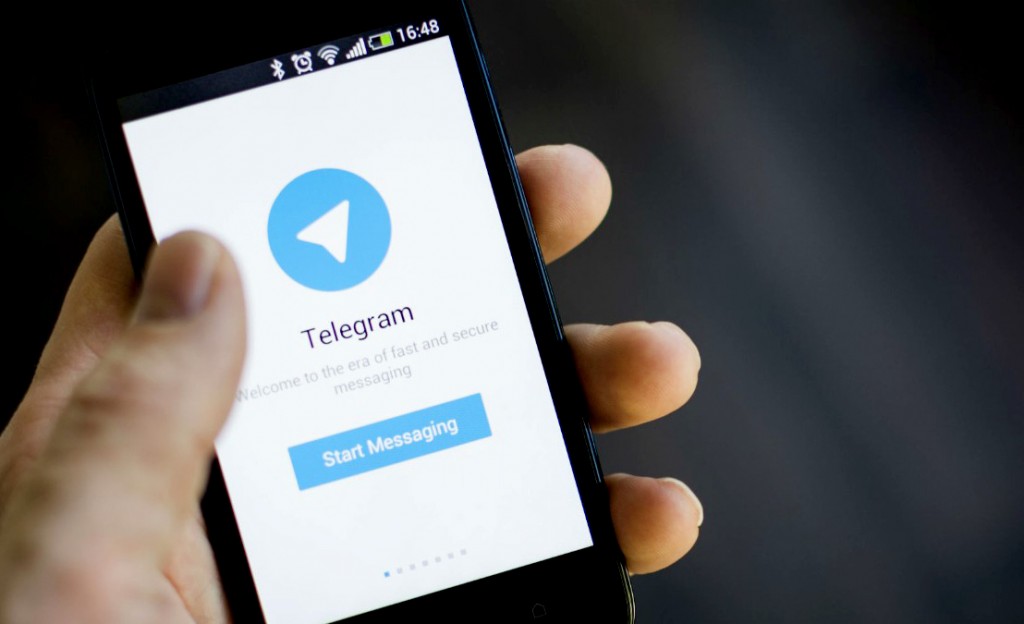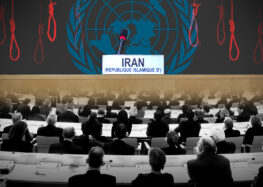Rouhani Administration Under Pressure to Shut Down Iran’s Most Popular Mobile App Prior to Election

Telegram Has Emerged as Major Platform for Reformist and Centrist Candidates
Iran’s Telecommunication’s Ministry has been under intense pressure by hardline organizations, including Iran’s Police, to shut down a number of the most popular mobile applications in the country, including Telegram, 24 hours prior to the elections on February 26 for Iran’s Parliament and Assembly of Experts, the International Campaign for Human Rights in Iran has learned.
As of this writing, the Rouhani administration has refused to comply with the request.
The move reflects the fact that mobile applications and social media have emerged as a major platform for centrist and reformist candidates in Iran. Over the past few days the Campaign has learned that moderates and pro-Rouhani candidates have a particularly strong presence on Telegram, far stronger than hardline candidates.
According to Asadollah Dehnad, the acting director of the Telecommunications Company of Iran, who was quoted by Citna, the Iranian technology news agency on January 18, the average Iranian spends more than two hours a day on Telegram and “that means many times more than watching [state] television.”
In Iran, all activities promoting or campaigning for any candidate in the media must cease 24 hours before the day of the election. However, extending these restrictions to mobile applications and social media traffic has become a priority for hardliners, even though this would then shut down major communications platforms in Iran.
Regarding blocking social networks before the elections, Minister of Interior Abdolreza Rahmani Fazli said on state TV on February 24, “that won’t be necessary. Of course, publications and social networks should not be campaigning for any candidates during the next few days, and if there is organized campaigning in cyberspace, we will deal with it.”
These latest developments come after a week of conflicting statements by state officials regarding Internet access. Over the last week, the Campaign learned that access in Iran has been disrupted, in a possible test run of the government’s ability to block Internet access before the crucial elections occur.
Direct access to Gmail in Iran was blocked for several minutes on February 24, 2016 while the official website of former centrist president and Assembly of Experts contender Ayatollah Akbar Hashemi Rafsanjani also became temporarily inaccessible because of DDoS attacks during the evening of February 23, 2016.
In a DDoS, or distributed denial of service attack, a targeted website is intentionally flooded with useless traffic, causing it to shut down.
“It appears that the Telecommunications Company of Iran [TCI] has set aside a server to monitor [content] and if it finds specific words picked for filtering, it will produce a false reply,” an Iranian network expert explained to the Campaign.
The Telecommunication Company of Iran, the main provider of telecommunications services in Iran, is owned by Iran’s Revolutionary Guards.
“In simple terms, the user will get redirected to a page that says the intended website is filtered. The way to get around it is to use a proxy encryption which will prevent monitoring by filtering systems,” said the source, adding that the TCI’s move enabled faster identification and filtering of the websites being visited by users.
“From about 5-5:30 until 6 this morning I was not able to get into my Gmail account with my home Internet line or on my mobile phone. I saw the page that said it has been filtered,” a Tehran resident told the Campaign. “The Internet speed is not so terrible right now but for a good 15 minutes getting into Gmail was impossible.”
In recent days some Internet service providers have also sent messages to users warning that service would be “severely interrupted” for two days beginning on February 23.
A major reformist website, Gaamedovom, has also experienced two similar attacks this week.
In addition, several online news outlets in Iran had reported that popular social media applications might be blocked as a security measure before the February 26 elections.
Iranian officials denied these reports, some of which were deleted shortly after appearing online.
The semi-official Iranian Student News Agency (ISNA) quoted unidentified sources on February 21, 2016 saying that the Telegram messaging app, which is used by approximately 20 million Iranians, “will be blocked on the last two days of the week,” when Iranians go to the polls.
“Supporters of filtering Telegram argue that campaigning is banned 24 hours until voting begins but there’s no way to monitor or control that on social media. That’s why they want Telegram blocked,” said the report.
The report was later removed from the site, but some copies still exist.
Judicial authorities had also ordered the filtering of three popular mobile applications, Lion, WhatsApp and Tango, according to a report by the Young Journalists Club on February 23, 2016. That article was also deleted minutes later.
The last major interruption of Gmail access occurred in late September 2012 when the email service was blocked for several days by a Judiciary order, according to Reza Taghipour, who was the minister of Information and Communications Technology at the time.
Iran’s Information Technology News Agency (ITNA) has quoted a source at the Ministry of Information and Communications Technology denying the filtering reports: “There is no plan to cut or filter any social media networks and the reports about this matter are incorrect.”






